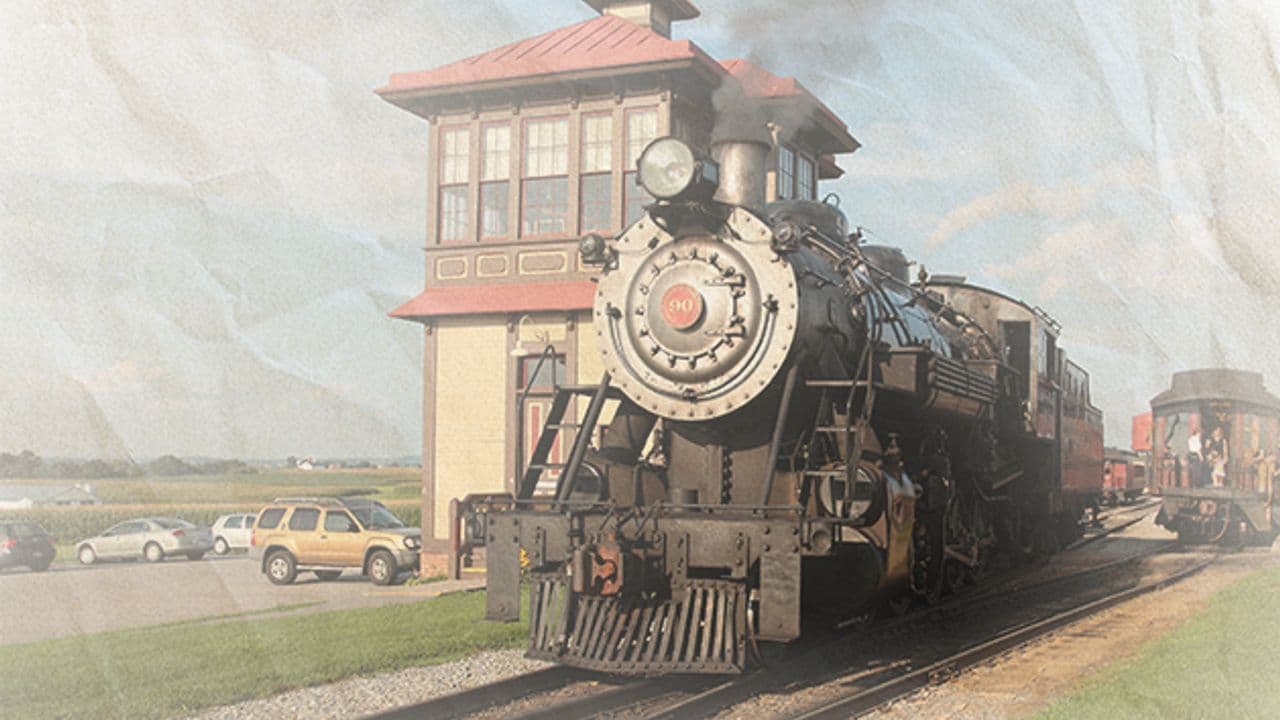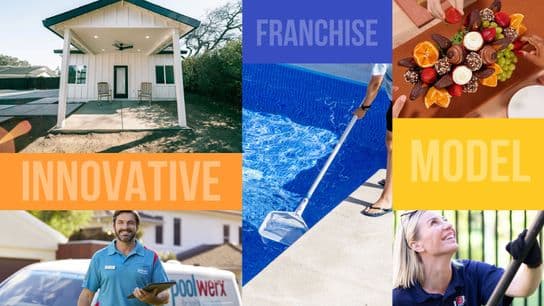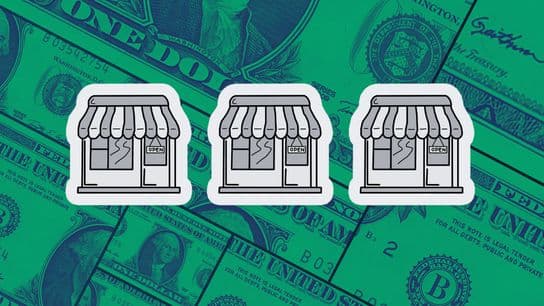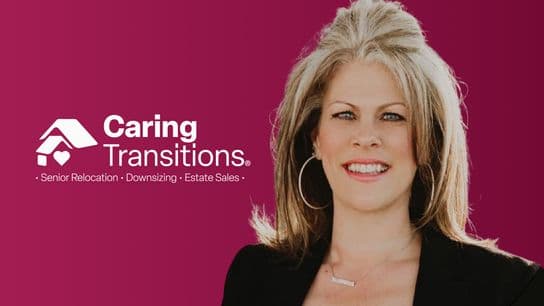What Pennsylvania's Economic Outlook Means for Franchisors
If you’re a franchisor looking to develop your business in Pennsylvania, you’ll want to consider the state’s policy variables and growth rates when scaling your plans.
This summer, ALEC-Laffer published its annual Economic Competitiveness Rankings, which forecasts a state’s current standing within 15 state policy variables. The report features two different rankings: Economic Outlook — a forecast based on a state’s current standing in 15 state policy variables — and Economic Performance — a retrospective measure based on a state’s performance over a 10-year period from 2008 until 2018. For the state of Pennsylvania, these rankings reveal a lot about where the state economy is going and where there is opportunity for their economy to grow.
- 2020 Outlook Ranking: 38
- 2008–2018 Performance Ranking: 39
The State
Like so many other states in the union, Pennsylvania’s economy is driven predominantly by agriculture. Manufacturing, mining, tourism and services are also significant contributors to the state’s diverse economy. As the fifth-most-populous state in the U.S., the state provides roughly 5,354,964 jobs to Americans per year.
Despite the state’s diverse economy, Pennsylvania was still hard hit by COVID-19, and many workers had a great deal of trouble obtaining their unemployment in these difficult times. As of mid-September, the state’s unemployment rate was at 13.7% — higher than most in the country. Statistically speaking, women and minorities are paying the highest price during the recession, as these demographics are more likely to work jobs that can not be done remotely. Though the state is making efforts to boost the economy, their economy remains at a standstill.
Making Sense of the Data
What does this mean for Pennsylvania’s economy? To start with the Economic Performance report, the index shows that within the past ten years, Pennsylvania has been outperformed by 38 other state economies. The performance index is based broadly on a state’s performance within State Gross Domestic Product, Absolute Domestic Migration and Non-Farm Payroll Employment. The category that slowed the agriculturally driven state down was their Absolute Domestic Migration status. Pennsylvania lost 228,570 people in the past 10 years, leaving them with a ranking of 44th. The state’s State Gross Domestic Product, however, left them with a ranking at 27th, with 34.5% growth.
The Economic Outlook tells another story about the Pennsylvania economy. The ranking is based on a state’s current standing in 15 state policy variables. Each of these factors, ranging from sales tax burden to state minimum wage, is influenced directly by state lawmakers through the legislative process. In this ranking, Pennsylvania is seated 38. Although they’re ranked in the middle of the pack, The Keystone State still has more potential to grow economically than 12 other states.
The report indicates that, generally speaking, states that spend and tax less experience higher growth rates than states that spend and tax more. While this is an important finding for entrepreneurs looking to start their own business, it shouldn’t discourage them from investing in the franchise of their dreams if they're in a market with a slower growth rate. For states like Pennsylvania, this presents an opportunity to grow.
When it comes to deciding where franchisors should develop their brand, it’s always important to look at the complete picture of what the region has to offer. Although in the past Pennsylvania has been behind in performance, its potential for growth is improving exponentially and is likely to continue upward to recovery.
Franchise Growth Plans
So what should franchisors do with this information? Though most franchisors take a shotgun approach — meaning wherever a prospect franchisee inquires, the franchisor will typically entertain that marketplace — the strategy of looking at these overall policies can help them scale their business at a more efficient rate. With that said, the findings within the report should not be the deciding measure for franchisors, but they should play a role in the decision.
Home Clean Heroes*
- Current units in state: 0
- Growth capacity in state: 25
- Total jobs created at max growth capacity: 175
Joe Delatte, President of home-cleaning services brand Home Clean Heroes, said building concentrically around the Southeast will be key moving forward and continuing their successful growth.
“It’s no secret that we aren’t the first residential cleaning business model, but we are excited to bring a fresh approach to markets in states where this particular model and franchise opportunity haven't been available,” said Delatte. “We’ve gained great traction in the Southeast already and are looking to build out neighboring territories to existing locations. We look at income and household numbers in these markets along with website analytics, and we can zero in on markets where the need matches the want.”
Sylvan Learning
- Current units in state: 14
- Growth capacity in state: 53
- Total jobs created at max growth capacity: 530
John McAuliffe, Sylvan Learning* CEO, seconded the notion of strategic growth. According to the early education franchisor, the state has opportunities for the right businesses that currently fit the needs of the population.
“We pick areas to focus our franchise development efforts on based on demographic data we receive from our mapping-system provider,” said McAuliffe. “We look for areas with a high concentration of families with school-age children whose annual income is $50k or above. We also look at some other factors such as shopping centers (where tutoring centers can be located) schools and competition.”
TWO MEN AND A TRUCK*
- Current units in state: 5
- Growth capacity in state: 15
- Total jobs created (at max growth capacity): 345
TWO MEN AND A TRUCK Franchise Development Specialist Cheryl Ackley says that a state's regional data drives their decision to develop.
“We look at many different pieces when defining territories, specifically using data on individual household incomes, population and ZIP codes,” said Ackley. “These reflect how the full-service moving experience will impact our communities in a positive way by moving our customers forward.”
Franchise Brands Headquartered in Pennsylvania
- AAMCO Transmissions, Inc.
- Arooga's Grilled House
- Barre3
- Bruster's Real Ice Cream
- College Pro Painters (US) Ltd.
- Cottman Transmissions
- Family Financial Centers
- Fox's Pizza Den
- GNC
- Green Home Solutions*
- Griswold Home Care
- CertaPro Painters
- iDropped
- Ikor
- JDOG Junk Removal
- Lee Myles Transmissions and Autocare
- MAACO Enterprises, Inc.
- Monster Tree Service
- Mr. Sandless
- MRI Network
- NEXClean
- Pathetic Medic
- Philly Pretzel Factory
- Power Train
- Pro Martial Arts
- Quaker Steak & Lube
- Rita's Ices, Cones, Shakes & other Cool Stuff
- Saladworks
- Saxby's Coffee
- Seniors Helping Seniors
- Snapology
- Soccer Shots
- The Dog Stop
- The Goddard School
- Tinder Box
- Visiting Angels
- Vocelli Pizza
- We The People USA
*This brand is a paid partner of 1851 Franchise. For more information on paid partnerships please click here.









